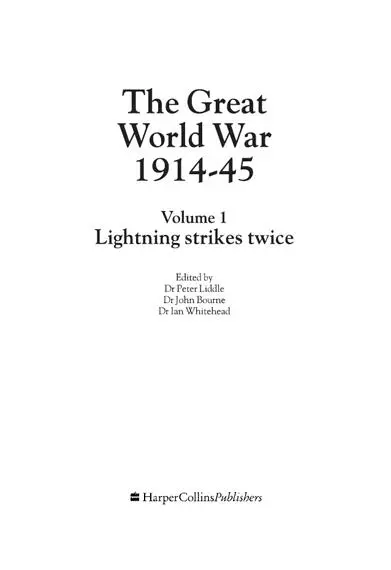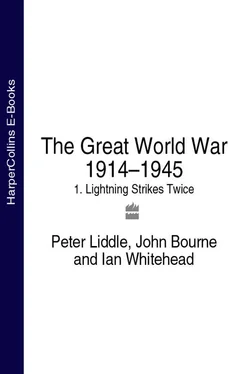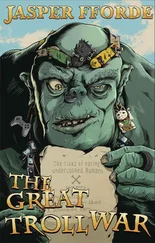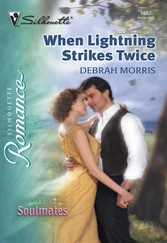
Collins
An Imprint of HarperCollins Publishers
77–85 Fulham Palace Road
Hammersmith
London W6 8JB
www.harpercollins.co.uk
First published in Great Britain by HarperCollinsPublishers 2000
Copyright © Dr Peter Liddle, Dr John Bourne and Dr Ian Whitehead 2000
The editors assert the moral right to be identified as the authors of this work
A CIP catalogue record for this book is available from the British Library.
All rights reserved under International and Pan-American Copyright Conventions. By payment of the required fees, you have been granted the nonexclusive, nontransferable right to access and read the text of this e-book on-screen. No part of this text may be reproduced, transmitted, downloaded, decompiled, reverse-engineered, or stored in or introduced into any information storage and retrieval system, in any form or by any means, whether electronic or mechanical, now known or hereinafter invented, without the express written permission of HarperCollins e-books.
HarperCollins Publishers has made every reasonable effort to ensure that any picture content and written content in this ebook has been included or removed in accordance with the contractual and technological constraints in operation at the time of publication.
Source ISBN: 9780007116171
Ebook Edition © SEPTEMBER 2014 ISBN: 9780007598182
Version: 2014–10–09
To the generations who experienced the lightning strikes 1914–1945
Contents
Cover
Title Page
Copyright
Dedication
Editors’ Introduction
PART I THE FRONT LINE EXPERIENCE
Chapter 1 A personal reflection on the two World Wars
J. M. Bourne
Chapter 2 Preparing for war: the experience of the Cameronians
John Baynes and Cliff Pettit
Chapter 3 Waging the undersea war: a British perspective
Jeff Tall
Chapter 4 The merchant seaman at war
Tony Lane
Chapter 5 War in the air: the fighter pilot
David Jordan
Chapter 6 War in the air: the bomber crew
Christina Goulter
Chapter 7 The Desert War experience
Niall Barr
Chapter 8 War in the Pacific
Eric Bergerud
Chapter 9 War in the Tropics: East Africa and Burma
Phillip Parotti
Chapter 10 Hitting the beach: the amphibious experience
Geoffrey Till
Chapter 11 British Special Forces operations behind enemy lines
Julian Thompson
Chapter 12 Partisans and guerrillas
Malcolm Mackintosh
Chapter 13 The experience of being abroad: doughboys and GIs in Europe
James J. Cooke
Chapter 14 German soldiers in victory, 1914 and 1940
Benjamin Ziemann and Klaus Latzel
Chapter 15 The experience of defeat: Kut (1916) and Singapore (1942)
Robin Neillands
Chapter 16 The experience of killing
Joanna Bourke
Chapter 17 The experience of captivity: British and Commonwealth prisoners in Germany
Peter H. Liddle and S. P. McKenzie
Chapter 18 Casualties and British medical services
Nick Bosanquet and Ian Whitehead
Chapter 19 Spies, codebreakers and secret agents
M. R. D. Foot
PART II THE EXPERIENCE OF LEADERSHIP
Chapter 20 Monarchy in wartime: King George V and King George VI
Hugo Vickers
Chapter 21 Political leaders in wartime: Lloyd George and Churchill
George H. Cassar
Chapter 22 Erich Ludendorff and Tôjô Hideki: some comparisons
Peter Wetzler
Chapter 23 Foch and Eisenhower: Supreme Commanders
Frank E. Vandiver
Chapter 24 General Brusilov and Marshal Zhukov, June 1916 and June 1944
John Erickson
Chapter 25 Reflections on the experience of British generalship
G. D. Sheffield
Chapter 26 Coalition war: the Anglo-American experience
Dennis E. Showalter
Chapter 27 Coalition war: Britain and France
William Philpott
Chapter 28 Coalition war: Germany and her Allies, Austria-Hungary and Italy
Gary W. Shanafelt and G. T. Waddington
PART III THE EXPERIENCE OF OCCUPATION
Chapter 29 The experience of occupation: Belgium
Mark Derez
Chapter 30 The experience of occupation: Northern France
Margaret Atack
Chapter 31 The experience of occupation: Poland
Anita J. Prazmowska
Chapter 32 The experience of displacement: refugees and war
Guy S. Goodwin-Gill
Chapter 33 The experience of genocide: Armenia 1915–16 and Romania 1941–42
Mark Levene
Keep Reading
Notes
Index
Acknowledgements
About the Publisher
Editors’ Introduction
A part from debates about the international ramifications of the Treaty of Versailles, historians have tended to study the two world wars in isolation. This has been justified by the assumption that the two conflicts were qualitatively and quantitatively different. The First World War has more often than not been regarded as a ‘bad’ war resulting from failures in diplomacy, and a war characterised by the ‘futile’ sacrifices of trench warfare on the Western Front; standing in stark contrast to the justifiable and necessary struggle, between 1939 and 1945, against Nazi tyranny and aggressive Japanese militarism. In the First World War the civilian populations of the belligerent powers played an increasingly vital part in the war effort. But it is the Second World War, with its indiscriminate bombing of cities placing civilians in the front line, and technology taking man’s destructive powers to new heights, that is more usually seen as the first truly ‘total’ war. To treat the wars separately in this fashion, however, is to ignore a significant historical reality – all those who were over forty years of age in 1940 would have had their adult lives in some sense defined by their participation, or non-participation, in these two global conflicts. It is this continuum of human experience that firmly unites the world wars, and which is the focus both of this book and its successor volume.
The aim throughout is to demonstrate the diversity of personal experience in the two world wars. This volume examines uniformed service and such aspects of civilian experience as occupation, displacement and genocide. It discusses the exercise of political and military leadership and details the difficulties of prosecuting coalition warfare. The later volume deals with the national experiences of both belligerent and neutral states and considers the role of civilians in war. There are also sections dealing with moral and cultural issues.
The comparative approach that underpins the book reveals striking parallels between the two global conflicts of the twentieth century. It is clear that in many respects lightning did indeed strike twice – when considering the development of modern warfare, its challenges and its impact, there is much that unites the two conflicts. Indeed, it is tempting to conclude that, in relation to human experience, there was nothing fundamentally new in the Second World War. There were, however, important differences, none more significant than the ideological basis of the struggle between Nazi Germany and her opponents. The First World War was, in part at least, the product of ancient Balkan savageries and the fate of the Armenians gave warning of the human capacity for organised atrocity on the scale of genocide, a word not yet then coined. But a new register is required to measure the consequences of ideological warfare in the Second World War. German and Japanese conduct of the Second World War was driven by racism and political dogma. This and the response it provoked from the Soviets on the Eastern Front, the Americans in the Pacific and the British and Americans in the skies above Germany and occupied Europe ensured that the Second World War extended the frontiers of human degradation and misery well beyond the boundaries ‘achieved’ in the earlier struggle.
Читать дальше













